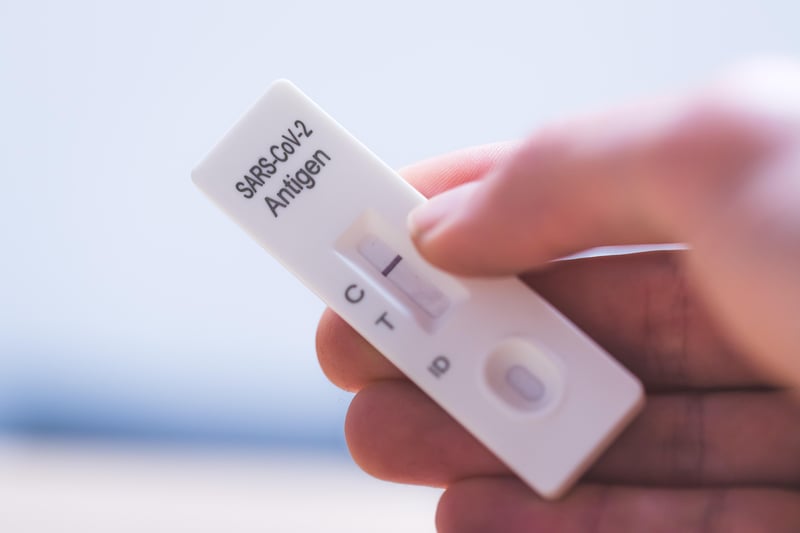Get Healthy!

- Posted September 28, 2022
'Breakthrough' Infections After COVID Vaccine Can Help Prevent Future Illness
It's very frustrating to get a COVID-19 vaccine and then wind up catching the virus anyway.
But these breakthrough infections actually do you a world of good, providing a powerful boost to your existing vaccine-induced immune protection, a new study reports.
People infected after getting a basic two-dose COVID vaccination experienced an immune response equal in power and effectiveness to receiving a third booster, researchers reported recently in the journal Med.
This boost is particularly potent for older folks, whose waning immune systems tend to produce shorter-lasting responses to the COVID vaccine, said Dr. Marcel Curlin. He's an associate professor of infectious diseases at Oregon Health & Science University School of Medicine (OHSU) in Portland.
"We know that immune responses after vaccination decline significantly with age," Curlin said. "What's very interesting is that if you've had a natural infection, that age drop-off does not occur anymore. It gets erased."
For the study, researchers measured the COVID antibodies of 99 OHSU employees, all of whom had received the standard two-dose vaccination. They then compared the antibody levels of people who'd gotten a third booster dose against those who didn't bother with the booster but wound up catching a natural infection.
The immune responses found three months after a third vaccine dose wound up being comparable to those found one month after a breakthrough infection, researchers found.
These findings help explain why breakthrough infections are growing milder, said Dr. William Schaffner, medical director of the National Foundation for Infectious Diseases.
For every 10,000 vaccinated patients who develop COVID only 1.5 die and only 18 wind up with severe disease, according to a U.S. National Institutes of Health review published in January and based on data from 1.2 million fully vaccinated people.
"I think the results of this study are going to be received with widespread nodding 'yes' in agreement and smiles from both public health people and clinicians who are taking care of patients around the country," Schaffner said. "These results, I think, mirror and help explain a lot of what's being seen at the present time around the country."
Overall, the results indicate that "vaccination is a pathway to milder illness," Curlin said.
"Natural infection on top of vaccination should be mild because you're already somewhat protected, and that top-off effect gives you a really strong immune response, as good as a booster vaccination," Curlin said. "In some subtle ways, it may even offer some immunologic advantages compared to three doses."
That's because the boost caused by natural infection will likely be in response to whatever new COVID variant is most dominant at the time, while vaccine makers take longer to update booster shots so they will specifically protect against new variants, researchers said.
"We would never advocate trying to get COVID to prevent COVID," Curlin said. "But the fact is if you've been vaccinated already and you get a breakthrough infection from one of these variants, you'll be in a better category that would protect you from future severe disease."
Vaccination appears to be helping COVID transition from a pandemic virus to an endemic illness similar to the flu or the common cold -- more transmissible but ultimately less harmful, Curlin said.
"Time is on our side in the sense that it will get less severe. I think we'll gradually kind of mutually adapt to the presence of this virus," Curlin said. "It's not like a light switch that goes on and off. It's more of a process. But eventually it's going to get to a point where we're no longer talking about it with the same degree of urgency."
More information
The U.S. Centers for Disease Control and Prevention has more about COVID vaccines.
SOURCES: Marcel Curlin, MD, associate professor, infectious diseases, Oregon Health & Science University School of Medicine, Portland; William Schaffner, MD, medical director, National Foundation for Infectious Diseases, Bethesda, Md.; Med, Sept. 21, 2022
